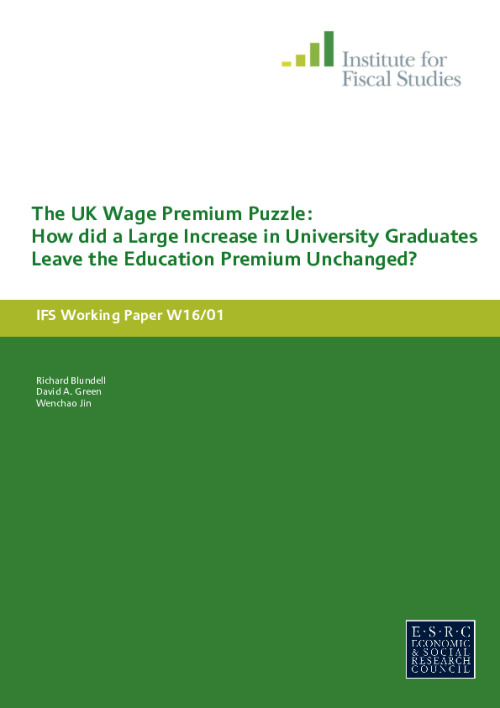Since the early-1990s the UK experienced an unprecedented increase in university graduates. The proportion of people with a university degree by age 30 more than doubled from 16% for born in 1965-69 to 33% for those born ten years later. At the same time the age profile of the graduate premium remained largely unchanged across cohorts. This paper first establishes the facts using a detailed analysis of micro-data on wage and employment patterns over the last two decades, benchmarked against the US economy. We then show that the stability of the age profile in the premium across different birth cohorts is unlikely to be explained by either composition changes or selection on unobservables. We also argue that it is inconsistent with skill-biased technical change affecting all advanced economies in the same way. We further rule out explanations based on factor price equalisation. Our resolution of the puzzle is a model in which increases in level of education induce firms to transit toward a decentralised technology in which decision-making is spread more widely through the workforce. We provide empirical support for this view.











